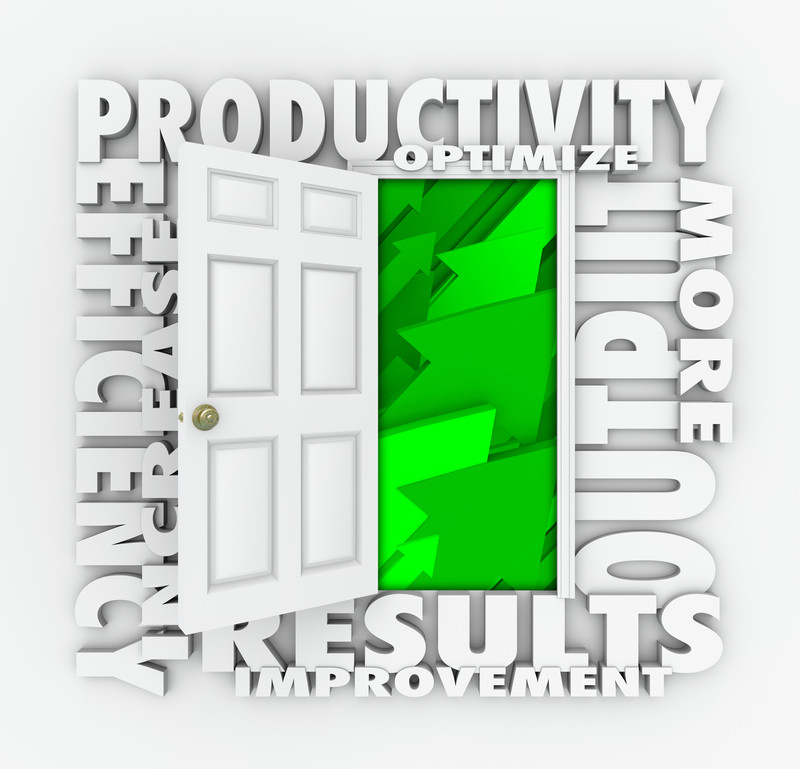Have you ever considered purchasing a standing desk or wondered if standing desks are better for your health or productivity?
A few years back, standing desks became popular when ads touting the benefits started popping up everywhere. They made bold claims and a lot of people jumped on board. Workers who spend most of their day sitting saw standing desks as a way to work healthier and be more productive. But, are standing desks really the healthier solution manufacturers claim they are?
If you spend long hours sitting to get your work done and you’re looking for ways to work healthier… or if you feel mentally sluggish due to sitting throughout the day and wonder if alternating between sitting and standing might make you more alert and productive, it’s worth looking into.
I’ve had people ask for my opinion, so I thought I would share some of the research I’ve done on the potential benefits, drawbacks and opinions surrounding standing desks. Are there risks from sitting at a desk all day? Is there a benefit to alternating between sitting and standing? Are standing desks worth the investment or just a clever trend? And what should you look for if you decide to purchase one?
So, here we go.
Are There Benefits to Standing Desks?
For anyone who’s done the slightest bit of research on whether or not standing desks offer benefits, sorting through the information out there to find an answer can be frustrating, to say the least.
In terms of productivity, a 2016 CNN article references a study showing a 46 percent boost in productivity for some employees. However, when you read through the whole article you notice the cited study was conducted on a small number of employees in a pharmaceutical call center over a six-month period.
That’s hardly an in-depth study or a good representation of the working population. And, in spite of bold claims at the beginning of the piece, the study actually finds other factors may have affected the results of the study more than standing desks, and certain variables weren’t taken into account. When those variables are factored in, it brings the productivity boost down to more like 14 percent, according to Alan Hedge, professor of ergonomics at Cornell University.
In a 2015 US News article, writer Anna Medaris Miller reports on a 2014 study in the International Journal of Environment Research and Public Health, which found that “giving a bunch of desk jockeys sit-stand desks reduced their sedentary time by more than three hours a week.” According to Miller, the study also claims standing “increased the sense of well-being and energy, while decreasing fatigue and appetite and keeping productivity steady” for the workers studied.
But Miller goes on to give examples of why standing to work may not be the perfect solution some claim. She also quotes professor Hedge, who states, “If what you’re doing is replacing sitting with standing, you’re not actually doing your body any favors. In fact, you’re introducing a whole variety of new risk factors.” (I think anyone who has worked eight hours on their feet would agree with that observation!)
Then there’s the NY Times article, which focuses on Dr. James Levine, a researcher at the Mayo Clinic, who “has an intense interest in how much people move — and how much they don’t.”
In the article, Dr. Levine is quoted as saying, “Excessive sitting is a lethal activity.” Levine believes there is more than adequate data showing the harm in sitting for long periods of time and is also quoted as saying, “being sedentary for nine hours a day at the office is bad for your health whether you go home and watch television afterward or hit the gym. It is bad whether you are morbidly obese or marathon-runner thin.” And Levine goes into even greater detail about the health risks associated with “the chair based lifestyle” on the website Mercola.com.
But even Levine isn’t convinced standing to work is the answer. For him, it seems to be more about being more active overall and not living a sedentary lifestyle.
Finally, I found an NPR article titled Stand To Work If You Like, But Don’t Brag About The Benefits.
Like the US News and CNN articles, writer Angus Chen asserts that science might not support the big claims. And Chen quotes Dr. Jos Verbeek, a health researcher at the Finnish Institute of Occupational Health, as saying, “What we actually found is that most of it is, very much, just fashionable and not proven good for your health.”
Dr. Verbeek claims there isn’t really any evidence that standing to work is better than sitting. He believes the studies were either too small to be significant, or were poorly designed. He even goes so far as to state “there’s evidence that standing can be bad for your health.” And the article cites a 2005 study which “showed prolonged standing at work led to a higher hospitalization risk for enlarged veins.”
So, what’s a person to think? Do sit-stand desks or fully standing desks offer benefits to health and productivity or not?
I think the bottom line is, it may be a personal preference. Sitting all day may not be the best for your health, but standing at a desk all day may not be the perfect answer either.
I’m not in any way saying standing desks have no value. In fact, I have a lot of clients who use standing desks and LOVE them!!
If the work you do could be done while standing and you think the ability to stand off-and-on through the day would help you focus or feel better, by all means go for it.
I’m a big believer in finding what works best for you and your business. Just know that the claims made regarding benefits may be a bit exaggerated – and there may be a downside to standing.
Maybe standing for all or part of your day would help with mental sluggishness and circulation, as well as breaking up the monotony. But there are so many things you can do throughout your day to get your blood pumping, reduce the effects of sedentary work, and boost productivity.
Whether sitting or standing, it’s still a great idea to schedule time to actually GET MOVING throughout your workday. Take regular breaks and take a walk, or schedule a workout before work, after work, or during your lunch break. Or do some stretching as part of your daily routine. Those strategies are possibly even more beneficial than just switching from sitting to standing at a desk.
If you decide to explore this further, there are a number of options for standing desks on the market right now. They cover the gamut in terms of price. There are also a number of free-standing and smaller pieces you can put on top of your regular desk to choose from, so you can choose and easily shift between sitting and standing.
I’ve included some links below to help with your research. (I have no stake in any of these companies and don’t know that one is better than the other. Just thought I’d share what I found.)
And here’s a link for GadgetReview.com and their recommendations for what to consider before purchasing a standing desk.
While it would seem the verdict is mixed on whether standing desks improve health or productivity, if you feel it might help you in some way, there’s nothing wrong with giving it a shot. And I’d love to hear about your experience, if you do decide to get one! You can leave a comment or contact me to tell me what you think.
Links and reviews for standing desks:
Review of the best free-standing standing desks from Reviews.com



Great post.
Nice post!
Every one of us has a proper comprehension of the advice given to the public,
so that I really enjoyed the guide and expected you to provide us with
more things similar to this one.